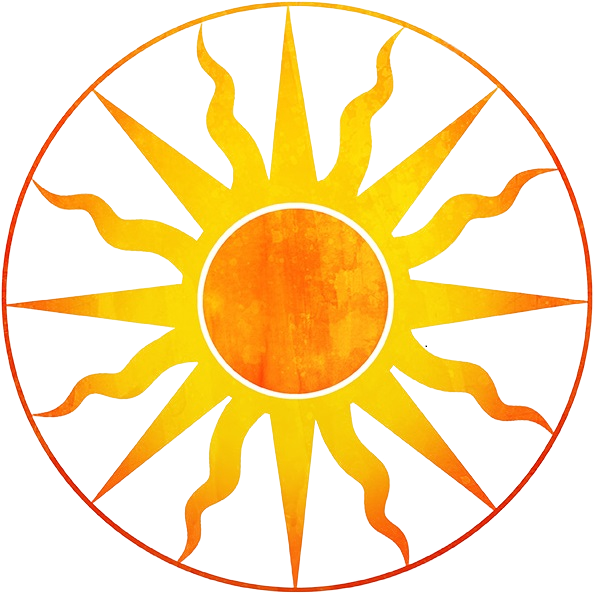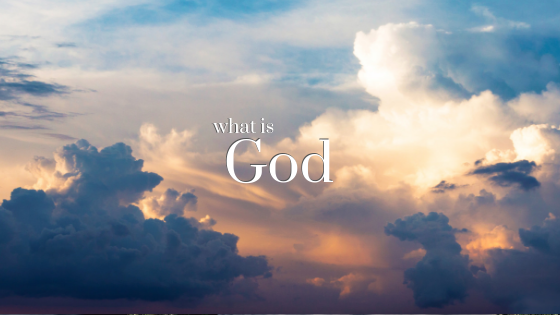One understanding of the word “God” seems to be the totality of everything. By this definition, there is nothing outside of God. Everything that is, came from God and God still exists in each form. It would be like saying you and I are two cells in one body. We each know that we are two different cells but are not experiencing being the same body. God would be the full consciousness of the One body. Enlightenment could be the cell realizing the body it is apart of.
There is another definition of God, which is the ultimate essences of some positive attributes, such as God is Truth, God is Love, or God is Good. It feels natural to me to be drawn to both this ideal culmination of attributes and also to God as Unity for definitions of god. However, I discovered that these two definitions of God seem to can conflict with one another. If God is Truth, then God is not untruth. And if God is not untruth, then God is not everything.
I don’t think these two definitions necessarily negate one another. There could be greater truth in the paradox of the two together. God is one and God is many. If we try ot divide the concept of God into parts, we could give analogies to a division of God into two by using the concepts of mother and father. The Mother aspect of God would be God as supreme Unity, from which nothing exists outside of. A lier, a thief, a rapist, a murderer, would always be a part of the Mother aspect of God, even when they are at their worst. In the Father aspect of God, there is judgment and hierarchy. On the Father’s side, the highest bar is set for what is God and all else below it is not God. To the Father, a person committing evil is not God in those moments.
Those were some objective thoughts on God and now I will share some subjective feelings. God is to me, perhaps above all, a tremendous mystery. One reason I generally refrain from using the word “God” is that when others use it, it has a connotation of being more known than unknown. To me, being faced with the high degrees of beauty and love of “God” is to be completely overwhelmed, even sometimes in great terror for one who is unprepared. What do our tiny brains really know of God?
People also use the word “God” as a reference to a being, not unlike other beings. Here is Rudy, here is Dave, and here is God. Faith and disbelief in God seem to be perceived by most in reference to the question of if a ‘supreme being’ exists, a question of if there is a conscious individual running the whole show. In my opinion, God is better viewed as connection itself and the highest ideal (Mother & Father), rather than something akin to wondering if “George is really the manager at Starbucks or not”.
The connection/mother aspect of God seems to be evident experientially. It would be difficult, and perhaps impossible, for me to rationally explain to you what great connections can be experienced between things. You could only understand if you yourself had those experiences. The first time I fell in love with a woman, I did not know that that level of connection to anything was possible although I had heard about it constantly throughout my life. Through experiencing connection, a road can appear to experience higher and higher connection. A road to God. Does that road lead to a supreme being? Does it matter? The process of increasing the experience of connection is meaningful in itself and does not need proof of an ultimate universal connection to be worthwhile.
The value/father aspect of God seems to be evident rationally. If one thing can be known as better or truer than something else, a hierarchy is formed. This forms a second road to God. There is a ladder of what is more true, more good, ultimately aiming at the Truth and the Good. Is there actually a supreme Truth? Again, the process itself proves itself to be valuable, regardless of the question of an ultimate end state. It does not seem its existence can be known, unless it does exist and is arrived at.
I like to think of “God” as the highest point that these roads lead to. I do not know how far they go, I only know so far as I have traveled on them and that they still go further. I know that these roads exist and that “God” (by my definition) exists further onward, yet I don’t know at all what “God” is since I have not reached the end of either road. In my concept of God is this merger of certainty and uncertainty. Two in the One. One in the Two.
In conclusion, I think the idea of God on an individual level can be a useful one, so long as there is enough chaos felt in the word “God” that it is open to great mystery, while also there is enough order understood in the word “God” that it provides reference to move at least the next step forward into something better. To have too much order around “God” is to be stuck in a fundamentalist position, while too much chaos around “God” is to be stuck in a nihilistic position.
Since my understanding of the word “God” seems to differ from the greater population, I exclude it from my vocabulary except among friends who know what I mean or in essays like this where it can be spelled out.

